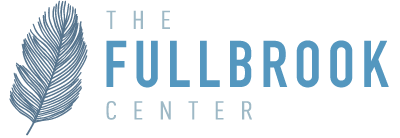Fort Worth Marijuana Rehab
Community Outreach Services for Marijuana Addiction Treatment in Fort Worth, TX
Cannabis, commonly known as weed, pot, reefer, grass, dope, Mary Jane, and other names, is widely used recreationally. With millions of people using it each year, it’s no surprise that marijuana is one of the most popular drugs in America. However, it’s important to recognize that many people struggle with marijuana addiction and find it difficult to control their use.
Due to the increasing social acceptance of marijuana use, overcoming cannabis dependence can be challenging. If you find yourself using marijuana multiple times a day and struggling to stop, you may need a marijuana addiction treatment program. The Fullbrook Center’s outreach office in Fort Worth, TX, provides support for those struggling to find a reputable marijuana rehab.
It’s not easy to ask for help, especially when it comes to a substance that is widely accepted. But seeking support for marijuana addiction is important for your health and well-being.
If you or a loved one are facing difficulties overcoming marijuana addiction, The Fullbrook Center is here for you. We’ve helped countless individuals overcome marijuana addiction through evidence-based treatment at our marijuana rehabilitation facility.
Is Marijuana Really Addictive?
It is a common misconception that you can’t develop a marijuana addiction. While this drug may not be as addictive as other drugs, you can get hooked on it. Recent research shows that addiction to marijuana, known as “marijuana use disorder”, is common and affects around 30% of marijuana users.
Marijuana use disorder occurs when a person’s brain becomes dependent on the drug and stops producing its own endocannabinoid neurotransmitters. This can lead to withdrawal symptoms for marijuana that are difficult to control, even when it causes problems in a person’s life. The risk of developing a marijuana use disorder is even higher if a person starts using marijuana at a young age.
It’s important to note that even for people who don’t develop a physical addiction to this drug, they may have a psychological one. Since it’s classified as a psychoactive substance, those who regularly use marijuana may begin to feel like the only way they can feel normal is to use the drug.
What are the Long-Term Effects of Marijuana Abuse?
Marijuana drug abuse can have long-term negative effects on a person’s brain, including memory loss and impaired learning, impulse control, and cognitive abilities. It may also lead to a decline in IQ. Marijuana affects the cannabinoid receptors in the brain that influences pleasure, as well as time perception. Those receptors also affect thinking, concentration, and decision-making.
Long-term marijuana substance abuse can also harm the lungs and throat, increasing the risk of cancer and lung disease similar to smoking tobacco and can cause respiratory infections. In some cases, marijuana addiction may also contribute to anxiety, depression, and schizophrenia, particularly in individuals who are already at risk for these conditions.
Marijuana use can also suppress the immune system, leading to a higher risk of illness. The drug can also impair sexual function and lead to intense mood and personality changes.
Other effects of marijuana use include:
- Impaired motor function
- Poor reaction time, impaired judgment
- Increased heart rate, which can raise the risk of heart attack
- Respiratory issues if the drug is smoked
- Anxiety and panic
- Increases appetite, craving for snacks
- Red, bloodshot eyes
Comprehensive Addiction Treatment Serving Fort Worth
What to Expect in a Marijuana Rehab Program?
There are a number of ways that The Fullbrook Center can help people overcome their dependency on marijuana. Our quaint treatment center offers comprehensive substance abuse treatment programs specially designed to help those struggling with marijuana dependence achieve long-term recovery.
While there are currently no medications specifically designed for marijuana addiction treatment, therapies like cognitive behavioral therapy, experiential therapies, motivational enhancement therapy, and other evidence-based treatments are proven to help men and women overcome their marijuana use disorder.
For heavy users or those with other substance abuse or mental health disorders, medication may also be used alongside behavioral therapies to support recovery. It’s important to remember that you are not alone, and there is help available to support you in your recovery process.
Our rehabilitation program for marijuana offers the following evidence-based treatments:
- Medical Detox
- Experiential Therapy
- Cognitive Behavioral Therapy
- Group Therapy
- Family Therapy
- Equine Therapy
- Trauma Focused Treatment
- Recovery Yoga
- Daily Meditation
- Exercise & Fitness Program
- Continuing Care
Get Marijuana Addiction Help at The Fullbrook Center
It’s easy for women and men to become reliant on marijuana, and for some, it can be difficult to break the habit without professional help. At The Fullbrook Center, we work with people to help them overcome addiction. Stop your marijuana addiction and reliance before it gets worse. Reach out to The Fullbrook Center today to speak to our admissions team and get started on your marijuana addiction treatment.
